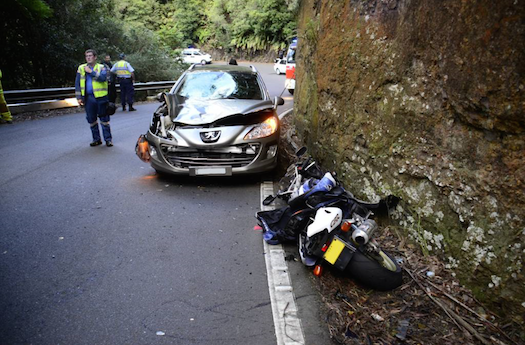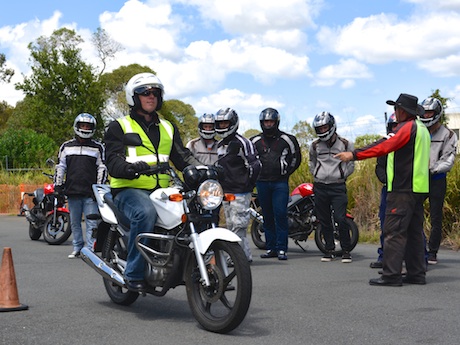On-road motorcycle training does not reduce the risk of crashing but makes riders more cocky leading to higher risk behaviour such as speeding, an Australian university study has found.
They also reported that these riders spent more time riding which means they are longer on the road and therefore statistically more likely to be involved in an incident.
The study of 2399 newly-licensed provisional riders recruited in Victoria was conducted from May 2010 to October 2012. It was funded by the Victorian Government Motorcycle Safety Levy paid by all state riders in their annual registration fee.
The riders were put through a VicRide coaching program put together by the Monash University Accident Research Centre in conjunction with Honda Rider Training Australia (HART) and Learning Systems Analysis.
The on-road motorcycle rider coaching program involved pre-program activities, four hours of on-road riding and discussion in small groups with a riding coach.
Results were obtained from the riders reporting back to the researchers and cross-checked with police records of crashes and traffic offences.
The Victorian study was carried out by university researchers Rebecca Ivers and Teresa Senserrick whose results have just been released.
In their report, they say there is no evidence that on-road coaching helped novice orders avoid crashes.
“Riders in the intervention group reported fewer near crashes at three months, but the effect was not sustained at 12 months; nor was it replicated in sensitivity analyses including only riders who completed the program,” the report says.
“The intervention group reported more confidence in riding skills, more attribution of crash responsibilities to riders, more speeding behaviours and more riding hours in an average week than control riders, after accounting for the effects of age, gender, and riding exposure. There were no differences in police-recorded traffic offences, or in other self-report measures.”
It seems from their report that riders learn better hazard perception skills, but these may be offset by an increase in risk behaviour from heightened confidence.
“A careful balance must be achieved in training to ensure riders do not develop unrealistic confidence in their ability, as this may lead to greater risk taking behaviour and therefore higher crash risk,” the report says.
Neuroscience Research Australia Senior Research Officer Dr Liz de Rome was involved as one of the researchers on this study.
“It was great to be able to run a well-designed study to investigate this important motorcycle safety issue,” she says.
Australian Motorcycle Council spokesman Guy Stanford says the research is credible and “a real surprise”.
“It tells us that there is much, much, more to learn about novice rider training than we thought,” he says.
“It shows that what experienced riders have learned from their personal experience of training and subsequently improving their own riding does not transfer well to novice riders. This will require considerable reflection.
“Really, it tells us that THIS teaching method didn’t work.
“The coaching contact was quite minimal and ‘up front’ only. A different method of coaching, say more like an apprenticeship, with regular contact between periods of riding, may produce a quite different result.
“I reckon we’ll be digesting this for a while and mining bits for clarity with analysis of results; eg equating “behaviours associated with increased crash risk” with actual crashes may overlook actual exposure adjusted crash reduction as a result of training.
“Perhaps confounders arise here with actual crash data available from Vicroads; there does not appear to be a direct link to participants, introducing assumptions in the analysis.
“It shows that getting novice training right will take more thought, directly linked crash data and more trials of different methods of training.”



